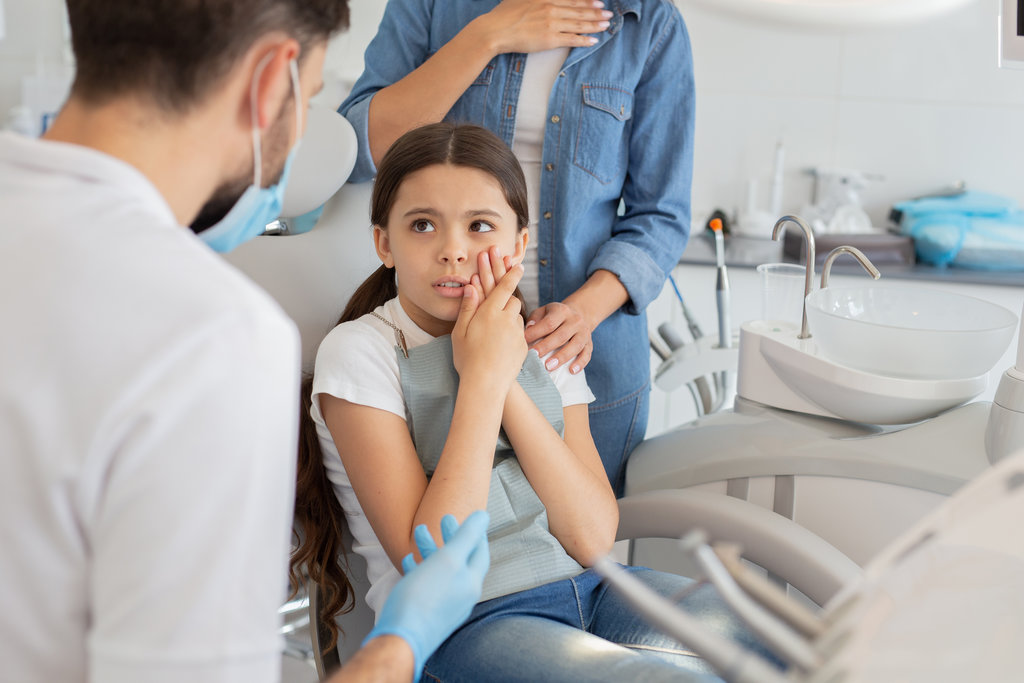When your child experiences a dental emergency, every second feels like an eternity as panic sets in and you struggle to determine the best course of action. Whether it’s a knocked-out tooth from a playground accident or severe tooth pain that strikes in the middle of the night, knowing how to respond quickly and effectively can make the difference between saving and losing a tooth, reducing pain, and preventing long-term complications.
At ABC Children’s Dentistry in Voorhees, NJ, we understand how frightening pediatric dental emergencies can be for both children and parents. Dr. Jeffrey Singer and our team have been helping families navigate these challenging situations since 2004, providing immediate guidance and comprehensive emergency care when children need it most. Our approach combines clinical excellence with a calm, reassuring environment to help families through these stressful moments.
Assess the Situation and Stay Calm
The first step in any pediatric dental emergency is taking a deep breath and remaining as calm as possible. Children look to their parents for emotional cues, and your composed response will help keep them from becoming more frightened or anxious. Quickly evaluate the severity of the situation by examining your child’s mouth, checking for bleeding, swelling, or visible damage to teeth or gums.
Look for signs of serious injury such as:
- Excessive bleeding,
- Difficulty swallowing or breathing,
- Loss of consciousness, or
- Severe facial swelling.
These symptoms require immediate medical attention at an emergency room rather than a dental office. For most dental emergencies, however, prompt dental care is the appropriate next step.
Immediate Steps for Common Dental Emergencies
Different types of dental emergencies require specific immediate responses to minimize damage and reduce pain.
- Knocked-out permanent tooth: Pick up by the crown only, rinse gently with water if dirty, attempt to reinsert in socket, or store in milk or saliva if reinsertion isn’t possible.
- Chipped or broken tooth: Rinse mouth with warm water, apply a cold compress to reduce swelling, and save any broken pieces you can find.
- Severe tooth pain: Rinse with warm salt water, use a cold compress on the outside of the cheek, and give age-appropriate over-the-counter pain medication.
- Object stuck between teeth: Try gentle flossing to remove, never use sharp instruments or excessive force.
- Bleeding gums or soft tissue injury: Rinse with warm water, apply gentle pressure with a clean cloth or gauze, and use an ice pack on the outside of the face for swelling.
These immediate interventions help stabilize the situation until professional dental care becomes available, potentially preventing more serious complications from developing.
When to Seek Emergency Care
Contact a pediatric dentist immediately for any knocked-out permanent tooth, severe tooth pain, significant facial swelling, or uncontrolled bleeding. These situations require prompt professional intervention to prevent complications and preserve your child’s oral health. Even seemingly minor injuries like small chips or loose teeth should be evaluated by a dental professional to ensure no underlying damage exists.
Time is particularly critical with knocked-out permanent teeth, as the best chance for successful reimplantation occurs within 30 minutes of the injury. Quick action and proper handling of the tooth during this window can mean the difference between saving and losing the tooth permanently.
Distinguishing Dental from Medical Emergencies
While most dental injuries require dental care, certain symptoms indicate the need for immediate emergency room attention. Severe facial trauma, difficulty breathing or swallowing, signs of concussion, or excessive bleeding may require medical intervention before dental treatment. Trust your instincts as a parent and seek the most appropriate level of care for your child’s specific situation.
Prevention and Preparedness
While not all dental emergencies can be prevented, many common injuries are avoidable with proper precautions. Ensure your child wears appropriate protective gear during sports activities, including mouthguards for contact sports. Teach children not to chew on hard objects like ice, popcorn kernels, or non-food items that can crack or chip teeth.
Prepare for potential dental emergencies by keeping your pediatric dentist’s contact information easily accessible, including after-hours emergency numbers. Maintain a basic dental emergency kit at home with items like gauze, over-the-counter pain medication appropriate for children, a small container for storing knocked-out teeth, and cold compress packs. Having these supplies readily available can make a significant difference in your ability to respond effectively during an emergency.
Trust ABC Children’s Dentistry for Emergency Care
When dental emergencies strike, you need a pediatric dental team you can trust to provide skilled, compassionate care for your child. Dr. Singer, who was voted Top Dentist for Pediatric Dentistry by the Consumers Research Council of America and will be featured in “Guide to America’s Top Dentists” 2009 Edition, combines advanced clinical training with a uniquely gentle approach that helps children feel safe and comfortable even during emergency situations.
Our team at ABC Children’s Dentistry has been creating positive dental experiences for children throughout South Jersey since 2004, and we’re here to help your family through any dental emergency with the same care and attention we bring to routine visits. Don’t hesitate to contact us at (856) 783-3515 or reach out through our contact form whenever your child needs emergency dental care.






